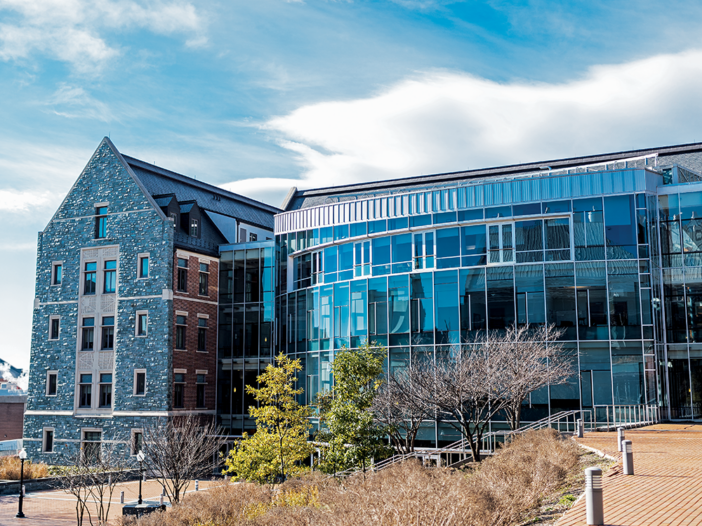The McDonough School of Business (MSB)’s Baratta Center for Global Business hosted its first annual conference Oct. 2, bringing senior executives from international businesses and policymakers together with the Georgetown University community to discuss the future of global business.
The conference, called “The Future of Global Business: A Connected Yet Disengaged World?,” focused on global and cross-border investing, global value chains, artificial intelligence and the future of globalization. It featured speakers like Moisés Naím, former minister of trade and industry of Venezuela, and Gina Raimondo, U.S. secretary of commerce.
The conference also announced the launch of the Baratta Center’s Annual Global Citizen Award, an annual award given to a Georgetown graduates to recognize exemplary leadership, innovation and impact in advancing the positive aspects of globalization. The first winner and runner-up will be announced in fall 2024.
The Baratta Center for Global Business was founded in April 2023 by Joe Baratta (MSB ’93), global head of private equity at Blackstone. The center seeks to form partnerships around the world as a venue for discussing and shaping global business, government and society.
Baratta said Georgetown is a unique place to deliver a differentiated business education.
“The Jesuit tradition of infusing ethics and morality into the study of business and commerce makes it a truly global academic institution. We have a leading school of foreign service and business and the location and position as the leading academic institution in Washington, D.C.,” Baratta said at the conference.
Baratta said global businesses can continue to be forces for good in the economy and society, driving global growth and helping address and solve the climate crisis.
“I think we’re at an important crossroad in global business where the very efficacy, morality and need for multinational institutions is being questioned by politicians, media pundits and others,” Baratta said. “But global business is actually a societal good that drives job creation, global growth and global understanding of one other.”

Paul Almeida, dean of the MSB and William R. Berkley chair, emphasized the necessity of globalization in the modern era.
“I personally believe that globalization is here to stay. The world is more interconnected and interrelated than ever,” Almeida said at the conference. “Globalization is not a belief, but the actual spread of technology, products, information and jobs around the world.”
Other panelists discussed the key issues facing humans in terms of globalization.
Naím said humans have yet to deal with all the emergencies coming our way.
“We can be surprised by the real costs of disharmonizing economies. The real costs of the entanglement of China, the United States and the rest of the world is going to be an expensive proposition,” Naím said. “We need to find a just and friendly way of organizing supply chains, but this will also be very expensive. It is going to change the manner of a lot of things, from education, health and business to politics and so on.”
In the final session of the conference, Raimondo discussed the pillars that the U.S. Department of Commerce is working on regarding the Indo-Pacific Economic Framework (IPEF), an initiative launched by President Biden to strengthen ties and economic growth within the Indo-Pacific region.
Raimondo said the U.S. government is looking to make deals with 13 Indo-Pacific countries on four particularly crucial areas.
“One is digital trade. Another is supply chains. The other is good governance, which is having these countries sign up to tax transparency and anti-corruption. And the final is climate. We have a separate agreement as it relates to infrastructure and climate,” Raimondo said at the conference. “The concept is that there is a large amount of U.S. capital and industry that would like to invest in infrastructure and clean technology in the Indo-Pacific.”
Raimondo said the countries’ adherence to certain environmental, transparency, labor and anti-corruption standards would unlock a significant amount of American commercial investment in the region.
“This is a perfect program to have a discussion between governments and regions, which is good for America, American national security and the economies of those countries,” Raimondo said.




















